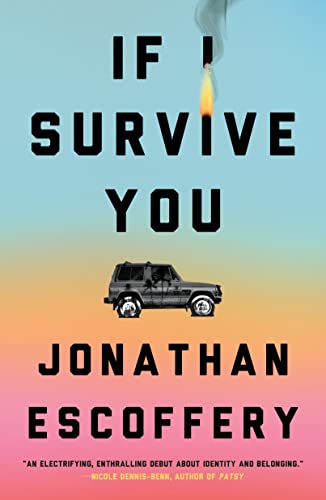
If I Survive You is a book of eight short stories that tie together and provide an overall message about not only immigrants but also Americans’ views of those who don’t fit—multiculti as the main character, Trwlawny, defines himself. Many loose ends in the story seem metaphoric for the Jamaican immigrant parents and their children. Survival is a theme, but throughout the book, I wondered whose survival was the focus. Then I realized that “who deserves survival” is probably Escoffery’s point.
Much is sinking, including Miami itself. Trelawny’s childhood home is sinking. The family landscape business is not surviving. Trelawny’s relationship with his father is in decline since Trelawny insists on going to college and doesn’t want to get his hands dirty or do manual labor like his father. His father thinks he’s soft. When he graduates from college and doesn’t have a job, Trelawny’s mother is in the process of returning to Jamaica, and the father favors his brother Delano. Trelawny becomes a homeless college graduate and struggles to survive.
Hurricanes unsettle the Jamaicans in Miami. The storms parallel the stormy relationships as each character explores the question of “Who am I?” and “Where do I fit?” After escaping homelessness, Trelawny has difficulty handling a job honestly and with integrity. His relationships with women are shaky, and his identity questions are frequent as he continues to be objectified by people from many strata of society.
Escoffery discusses complicated relationships in this book. The nuances of father and son dynamics are at the heart of the action. The relationship between Delano and his wife, Shelley, is interesting. So are the interactions between Delano and his children. Aside from the familial, Trelawn’s relationships with his many bosses and women are complex, and money is an issue in many ways. Some of their life events mirror the political issues in Jamaica, their homeland. The mother’s ambivalence and unrest play out in leaving her family for her homeland and eventually going to Italy. Many of the characters are SO unsettled, and racism prevails. The question of “what is black” is impossible to answer in the context of the book, and the author portrays marginalized family members and their powerlessness in an array of casual and institutionalized incidents.


